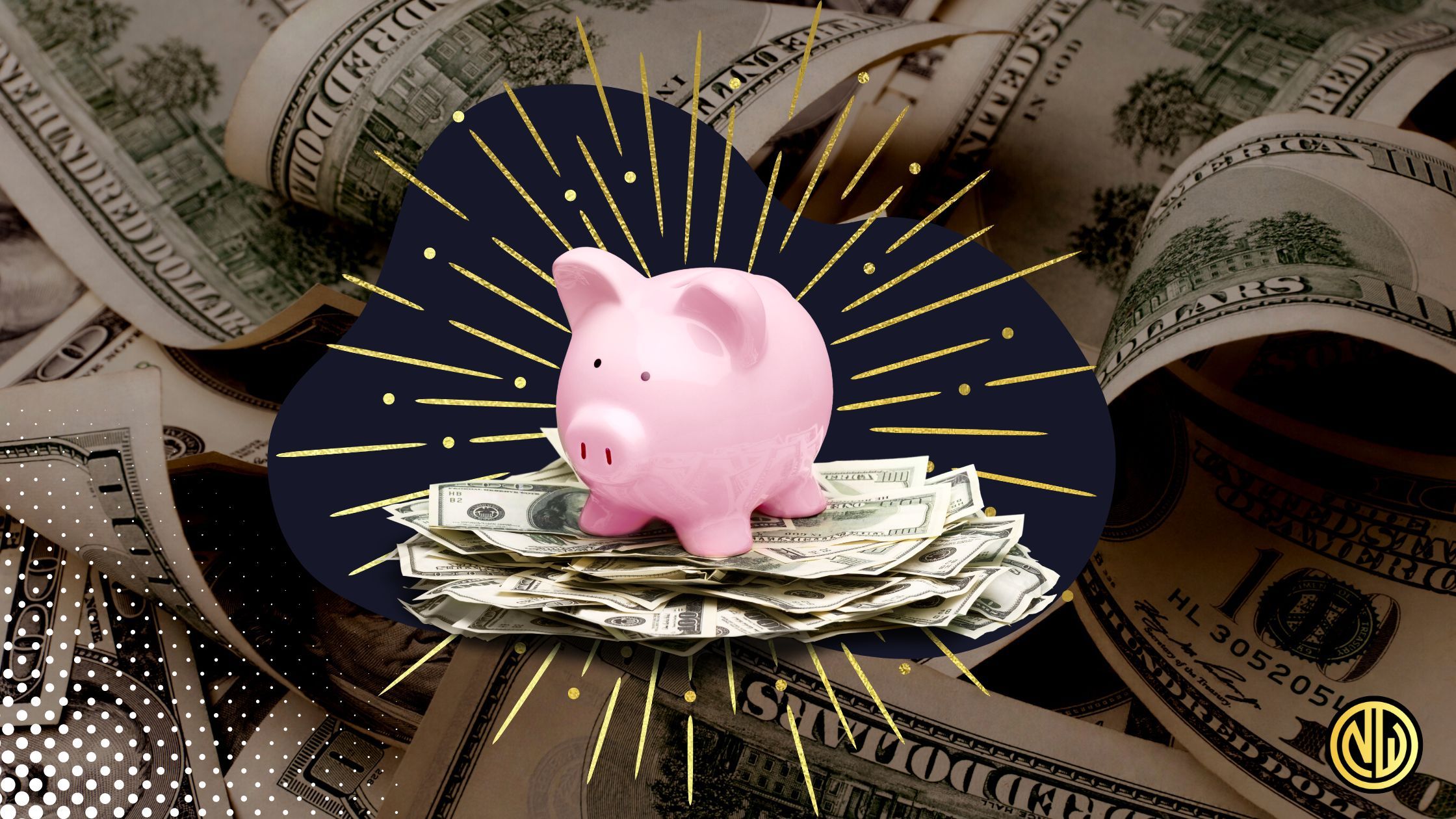Legal Disclaimer:This post is not financial advice. It is intended for educational purposes only. Consult with your financial advisor or a certified financial professional for guidance on investment choices.
“Financial freedom” is a sexy aspiration. Who wouldn’t want to be free from our societal structure of working day in and day out to make a paycheck?
More and more people want to know how to achieve financial freedom. There might be several factors to this, from the YouTube millionaires we see propping up around us to the realization that we’re getting older and perhaps don’t want to work so hard our entire lives. The bones of financial freedom culture are awesome, but the movement also attracts its fair share of bad actors, scammers and grifters.
Key Takeaways
- Being financially independent means you are not job-dependent to live your life.
- People often stumble into FI culture when researching how to eliminate debt.
- To be financially free, saving money every month is a must.
- Keeping your living expenses down can help you grow your bank account faster.
- It’s important to plan conservatively – often, medical bills rise as we age, particularly if we’re in poor health.
Just like diet culture, if you’re too strict with your finances it can be challenging to sustain. Here’s a bit more about what financial freedom means and why it’s such a controversial subset of personal finance.
Table of Contents
The Origins of Achieving Financial Freedom
The idea of a retirement fund (and period of life where you don’t work) is actually fairly new. For context, the 401(k) was only just invented in 1978, and the Roth IRA was invented in 1997. These were good innovations; an employer’s retirement plan helps people save for the future and encourages steady, stable careers.
About 20 years into 401(k)s existing, a study called the Trinity Study came along. This research examined historical stock market performance and found that if a retiree withdrew 4% or less of their nest egg each year in retirement, they would never run out of money, because annual gains would offset the withdrawal. This study was flawed, but the concept stuck.
Instead of a nest egg being a pool of money you’d slowly drip out in retirement, people realized they could hit a point in which they would be truly financially independent, no matter how long they lived after retiring. Retirement wasn’t about hitting a certain age, but rather having enough money.
People realized they could establish financial mileposts sooner than retirement age and actually retire years or decades ahead of schedule. This became known as Financial Independence, Retire Early (FIRE).
How to Pursue Financial Independence
No. 1: Make More Money
Remember that you have a limited amount of willpower. You could either use this willpower to increase income or reduce expenses. I recommend you do the former.
The reason for this is that a little extra hustle lets you still enjoy the things you love, without having to budget so tight. Having extra money in the picture makes it easier to save money and start investing.
No. 2: Reduce Expenses
Of course, there’s no point in bringing in more money or resources if you’re just going to keep spending every dollar you make. Financial freedom means learning how to set a monthly budget and live below your means.
Take a look at your spending habits and see where you can make adjustments. Often, people who have achieved financial freedom by themselves have gotten there by having enough money at the end of each month to reach their financial goals.
Personal debt can drag down these goals. This includes things like high-interest consumer loans and car loans. Focus on paying down your credit cards, managing monthly expenses and staying debt-free.
No. 3: Invest the Difference
Your money can be making you more money. Take the time to learn the basics of an investment portfolio so your retirement savings can grow with time. You don’t need to watch the stock market like a hawk, but you need a clear investment strategy.
Benefits of Financial Freedom
The pursuit of financial freedom offers numerous benefits that extend beyond mere monetary gains. Some of the key advantages include:
Reduced Stress
Achieving financial freedom eliminates the constant worry and stress that often accompanies financial instability. Individuals are better equipped to cope with unexpected expenses and have a sense of security that comes with knowing their financial future is secure.
Flexibility and Freedom
Financial freedom provides individuals with the flexibility to make choices based on personal preferences rather than financial constraints. It allows for more freedom in career choices, the ability to travel, and pursue passions and hobbies without worrying about the financial implications.
Long-Term Financial Stability
By adopting the principles of the financial freedom movement, individuals can establish a solid foundation for long-term financial stability. This stability ensures a comfortable retirement, the ability to support loved ones, and the potential to leave a lasting legacy.
Frequently Asked Questions
How Can I Achieve Financial Freedom?
Make more money, reduce expenses, and invest the difference. These three actions help you build wealth over time.
Do I Need to Work With a Financial Advisor to Reach Financial Freedom?
No. But a financial advisor can be helpful to keep you organized and make smart legacy planning decisions. I hired one to help me with the latter, personally.
Can an Emergency Fund Help Me Reach Financial Freedom?
Yes, but keep this money liquid and accessible. Don’t tie up emergency fund money in an account or investment that is difficult to access – the point is that you can pull it quickly in case of an emergency.
Take a Step Forward In Your Money Journey
Financial literacy builds confidence. Learn about the different directions you can go in your wealth journey to cultivate a life you love, both now and in the future. ◆
Thanks For Reading 🙏🏼
Keep up the momentum with one or more of these next steps:
💬 Leave a comment below. Let me know a takeaway or thought you had from this post.
📣 Share this post with your network or a friend. Sharing helps spread the word, and posts are formatted to be both easy to read and easy to curate, with nice image previews. You'll look savvy and informed.
📲 Connect on another platform. I’m currently publishing in these places. If you are too, say hello:
- Medium: Articles and thought essays.
- Threads: Casual, Twitter-esque commentary.
- Instagram: Media appearances, and some occasional IRL posts to Stories.
- TikTok: Occasional video scraps from reporting and life.
- LinkedIn: Buttoned-up posts.
📬 Sign up for my free email list. “The Morning Walk” is a free newsletter about writing, online publishing, and personal entrepreneurship. Learn more and browse past editions here.
🏕 Up your writing game. Camp Wordsmith® is a content marketing strategy program for small business owners, service providers, and online professionals. Learn more here.
📊 Hire me for consulting. I provide 1-on-1 consultations through my company, Hefty Media Group. We're a certified diversity supplier with the National Gay & Lesbian Chamber of Commerce. Learn more here.


